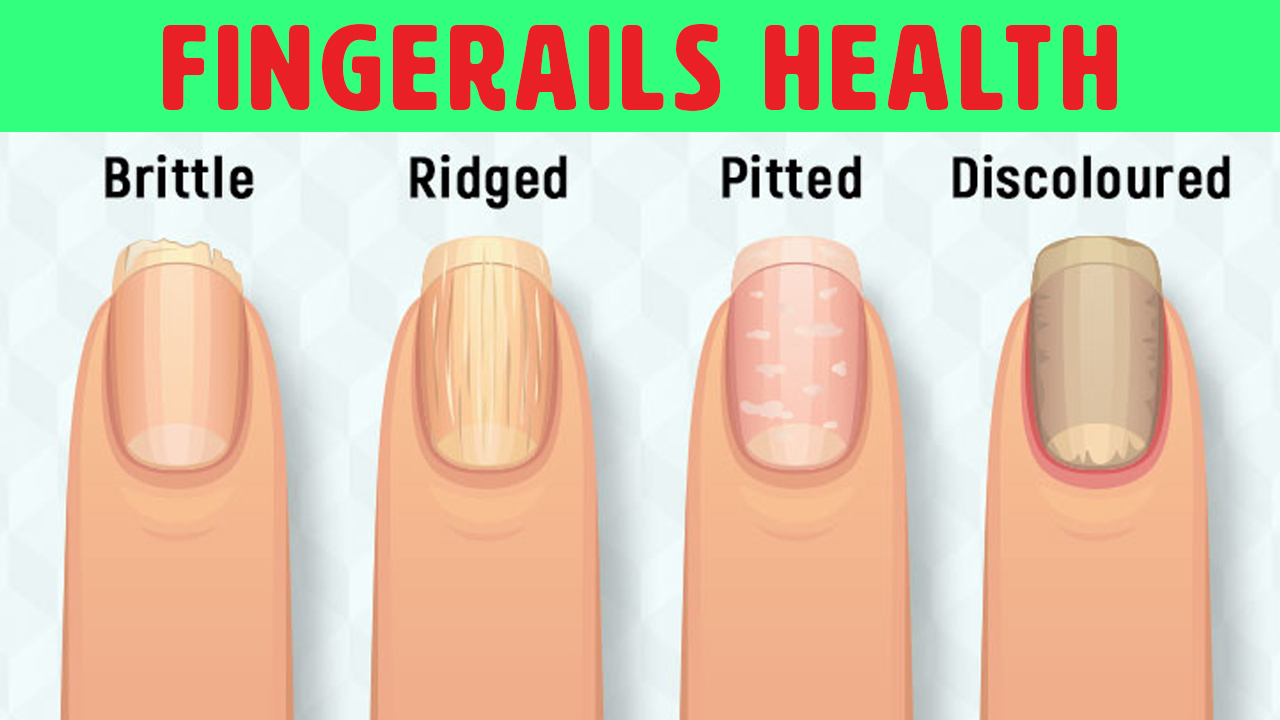Premium Only Content

8 Things Your Nails Can Tell You About Your Health
Here is what your fingernails say about your health. If you notice any strange changes to your nails such as yellowing nails or dark lines on your nails and are unsure of what may be causing the changes, rule out any health problems like melanoma or vitamin deficiencies.
#Nails #Health #HealthTips
Music:
https://www.youtube.com/audiolibrary/...
Summary:
8. Ridged Nails: According to John Anthony, MD, a dermatologist at the Cleveland Clinic in Ohio and Debra Jaliman, MD, a New York City-based dermatologist and author of Skin Rules, there are certain nail symptoms that you should not ignore. Dr. Anthony explains that the reason people will see horizontal ridges on their nails is that there could be direct trauma to the nail, or it could also be a cause of a more serious illness, in which case you’ll see it on more than one nail. He adds that the reason this occurs is that your body is working overtime to try and fight the illness, so it is saving its energy for the rest of the body that needs it more. In basic terms, your body is saying ‘the nails are not important enough for energy.’
7. Pitted Nails: According to MedicineNet, nail pitting is caused by the defective development of the layers of the nail plate, and it is common for those suffering from psoriasis. They add that nail pitting can affect up to 50% of people who are suffering from this condition. Dr. Jailman suggests that if you are experiencing any pitting or dents in your nails, you should speak with your doctor.
6. Discolored or Dark Lines Beneath the Nail: Discoloration or a dark line on the nail can sometimes be caused by melanoma; which is the most dangerous type of skin cancer. Dr. Anthony elaborates on that by stating that melanoma that comes from the nail unit is extremely serious and it can also cause a black line or stripe on the nail.
5. Bluish Nails: When your nails become bluish, it is a sign that the body may not be getting enough oxygen. Possible causes could be lung problems and heart problems.
4. White Spots: White spots are called leukonychia, which is a condition in which white lines or dots are present on fingernails or toenails. There is a myth going around that white spots on nails means calcium deficiency. But Dr. Anthony explains that this is not typically the case. He adds that the white spots are not very significant as they are often a result of trauma such as hitting your finger against something.
3. Yellow Nails: According to WebMD, yellow nails are one of the most common warning signs your fingernails can give about certain health issues. WebMD also adds that one of the most common causes of yellow nails is a fungal infection, but in rare cases, yellow nails can also indicate a more serious condition such as diabetes, thyroid disease or even lung disease. Dr. Anthony adds that yellow nails could also be a cause of smoking, which can stain the nails. So you might want to quit smoking if you notice your nails are constantly yellow! Yellow nails can also be a sign of vitamin or mineral deficiencies, which may mean that you need to change your diet or even add a multivitamin supplement to your life. In other cases, yellow nails can also be symptoms of psoriasis, while in extremely rare conditions, it could be a sign of cancer.
2. Cracked or Brittle Nails: Brittle nails, also called onychorrhexis, affects 20 percent of the population. This condition typically affects women more than men, and is characterized by weak nails which break, peel, or split very easily. According to Dr. Jailman, cracked or brittle nails can be a sign that the nail plate is extremely dry. LIke yellow nails, cracked or brittle nails have been linked to thyroid disease. Dr. Jailman explains that hypothyroidism is a condition where the thyroid is not producing enough hormones.
1. Bitten Nails: According to Medical Daily, the American Psychiatric Association’s Diagnostic and Statistical Manual of Mental Disorders (DSM) classifies nail-biting as one of the symptoms of obsessive-compulsive disorder. However, this does not mean that everyone who bites their nails has this disorder, but Dr. Jailman does explain that when this habit becomes excessive, you should consult your doctor.
-
 9:02
9:02
Bestie
2 years ago7 Ways To BOOST Your IRON Absorption
614 -
 6:01
6:01
Dr. Nick Zyrowski
21 hours agoIs Beef Tallow healthy? Here Is How I Use It...
4.74K5 -
 19:54
19:54
Degenerate Jay
18 hours ago $1.08 earnedThe Decline Of Assassin's Creed's World
12.4K2 -
 8:30
8:30
Chrissy Clark
12 hours agoBehind The Scenes Of Trump’s Inauguration🇺🇸 I Vlog
15.9K3 -
 1:06:05
1:06:05
PMG
11 hours ago $1.74 earned"What the FDA is Hiding About Nicotine Will SHOCK You w/ Dr. Ardis"
6.73K3 -
 23:15
23:15
The Based Mother
12 hours ago $0.70 earnedHOLY BLASPHEMY! Trump vs. Episcopal Bishop Budde at the National Cathedral in DC
3.98K15 -
 14:20
14:20
RealitySurvival
11 hours agoDrug Cartels Designated As Foreign Terrorist Organizations
3.43K2 -
![[Ep 591] Shock & Awe! Trump is Back! | Guest: Sam Anthony of [Your]News](https://1a-1791.com/video/fwe2/5c/s8/1/G/I/i/0/GIi0w.0kob-small-Ep-591-Shock-and-Awe-Trump-.jpg) 3:16:13
3:16:13
The Nunn Report - w/ Dan Nunn
1 day ago[Ep 591] Shock & Awe! Trump is Back! | Guest: Sam Anthony of [Your]News
13.3K5 -
 3:21:30
3:21:30
CharLee Simons Presents Do Not Talk
1 day agoDO NOT TALK with SIMONE ANDERSON, & MIKE COOK (World Collapse. Are You Ready?)
7.25K4 -
 1:38:35
1:38:35
FreshandFit
10 hours agoDecoding Lily Phillips' Lies Through An RP Lense!
71.6K26